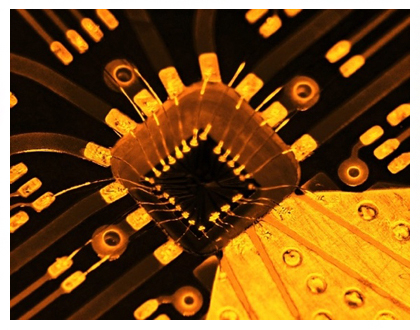
RIKEN:用硅半导体制造“量子比特”:
-超导竞争对手已经出现-
理研
国际研究团队于 1 月 20 日在英文科学期刊 Nature 上宣布。
我们用硅半导体制造了一个“量子比特”,并成功地以适用的精度对其进行了操作。
使用硅的量子计算机适用于大规模。
这是实现量子计算机的一步。
量子计算机计算误差:
量子计算机
它具有超高速执行计算的潜力,但问题是容易出现计算错误。
通过操作元件达到 99% 的准确度:
在实际使用中,需要对元件的每次操作具有 99% 或更高的准确度。
传统上,对于硅量子比特,
两元件联锁操作的准确率仅为98%。
RIKEN 新兴物理特性中心
Seigo Tarucha,副主任
国际团队
我们通过将两个电子限制在硅内部的微小空间中,创建了一个利用电子磁性的量子比特。
采用结合永磁体和微波的独特方法,
通过操纵这一点,达到了 99.5% 的准确率。
实际上,对量子计算机进行了两种类型的计算。
据说已确认以高概率给出了正确答案。
“超导”等3种方法:
到目前为止,已经通过“超导”等三种方法产生了相同水平的量子比特。
硅半导体的优势:
硅半导体具有各种优势,例如已经开发的加工技术。
我们的目标是从现在开始扩大规模。
国家先进工业科学技术研究院
新原理研究中心
到目前为止,超导方法一直是唯一的赢家。
然而,一个名为硅半导体的强大竞争对手已经出现。
它提高了对大型量子计算机的期望。
科学/IT:读卖新闻在线
https://www.yomiuri.co.jp/science/20220119-OYT1T50275/
Scientists achieve key elements for fault-tolerant quantum computation in silicon spin qubits
To do the current work, published in Nature, the group decided to experiment with a quantum dot structure
that was fabricated by nanofabrication on a strained silicon/silicon germanium quantum well substrate, using a controlled-NOT (CNOT) gate.
In previous experiments,
the gate fidelity was limited due to slow gate speed.
To improve the gate speed,
they carefully designed the device and tuned the device operation condition
by voltages applied to gate electrodes to combine established fast single-spin rotation technique using micromagnets and a large two-qubit coupling.
This allows them
to enhance the gate speed by a factor of 10 compared to the previous works.
Interestingly,
it was previously believed the increasing gate speed would always lead to better fidelity,
but they found that there was a limit, and that beyond that the increasing speed actually made the fidelity worse.
Through the work, they discovered that
a property called the Rabi frequency—a marker of how the qubits change states in response to an oscillating field—
is key to the performance of the system, and they found a range of frequencies
for which the single-qubit gate fidelity was 99.8 percent and the two-qubit gate fidelity was 99.5 percent, clearing the required threshold.
To test the capability of the new system, the researchers implemented
a two-qubit Deutsch-Jozsa algorithm and the Grover search algorithm.
On both algorithms output correct results with a high fidelity of 96-97%,
demonstrating that silicon quantum computers can perform quantum calculations with high accuracy.
RIKEN
https://www.riken.jp/en/news_pubs/research_news/pr/2022/20220120_1/index.html
Fast universal quantum gate above the fault-tolerance threshold in silicon | Nature